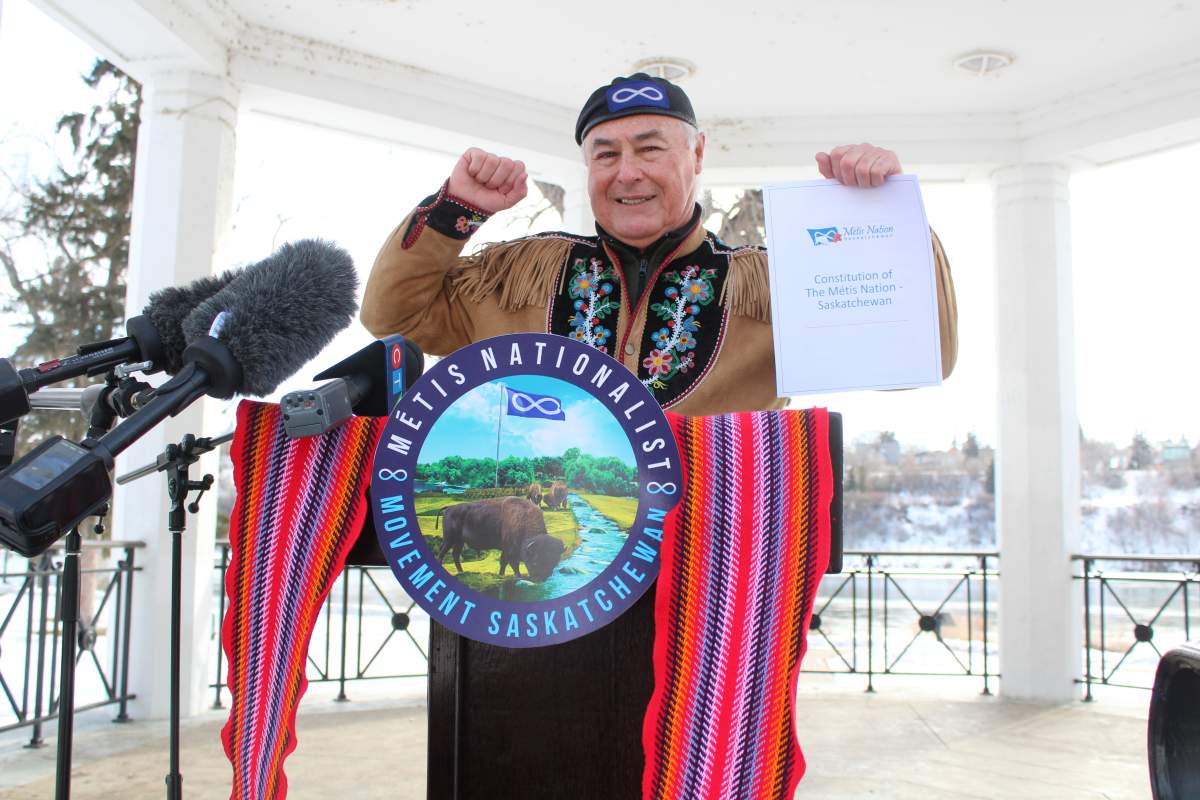Some Métis leaders claim changes to the Métis Nation-Saskatchewan’s election act are unconstitutional and leave thousands unable to vote in its upcoming election.

The Métis Nation-Saskatchewan (MN-S) has an election slated for May 29.
Changes to the Saskatchewan Métis Election Act were passed by the Métis Nation Legislative Assembly (MNLA) on Feb. 20, only allowing registered members of MN-S to vote on issues pertaining to the organization.
“Prior to that, any Métis 16 years of age and up would simply show up and swear a declaration that you’re Métis, and then you’re allowed to vote,” said Clément Chartier, former Métis National Council president, speaking to reporters as a concerned citizen Thursday.
Chartier, along with three leaders of local MN-S’s and a former MN-S president, filed an application to Saskatoon Court of Queen’s Bench Thursday, claiming MN-S is being unconstitutional.

Get breaking National news
“As a result of the Amendments, Métis person will now be required to show proof of citizenship in MN-S to stand for office or vote,” the application reads, further stating to prove citizenship, a Métis person must be registered with MN-S.
To register as a member of the MN-S, applicants must submit a number of documents and apply either at the registry office in Saskatoon, or online.
- Khamenei’s death met with ‘jubilation’ among Iranian-Canadians: Liberal MP
- ‘Something just went off’: Canadians in Middle East describe ‘surreal’ Iran missile strikes
- Queen’s University students stranded in Doha after Iran attack shuts down airspace
- ‘At first I cried’: How Iranian Canadians are reacting to the U.S. strikes in Iran
That includes “documents showing the historical link between each generation of the family from the applicant all the way back to a Métis ancestor within the Métis homeland,” according to MN-S’s website.
“(MN-S) will then determine where the applicant should be approved and a citizenship card granted,” the application states.
The application claims the three other applicants, Darlene McKay, Gail Johnson and Sheila Andres were not allowed to attend the MNLA and thus were unable to vote on the change.
The application said the MN-S’s constitution grants the right to vote to every Métis person over the age of 16 in the province, and argues this amendment to its election act is unconstitutional.
“What the Métis Nation-Saskatchewan has just done is reverted to being a club, a membership club no longer representing the Métis citizens of this province,” Chartier told reporters.
Global News reached out to the MN-S for comment. No one responded by publication deadline.








Comments
Want to discuss? Please read our Commenting Policy first.